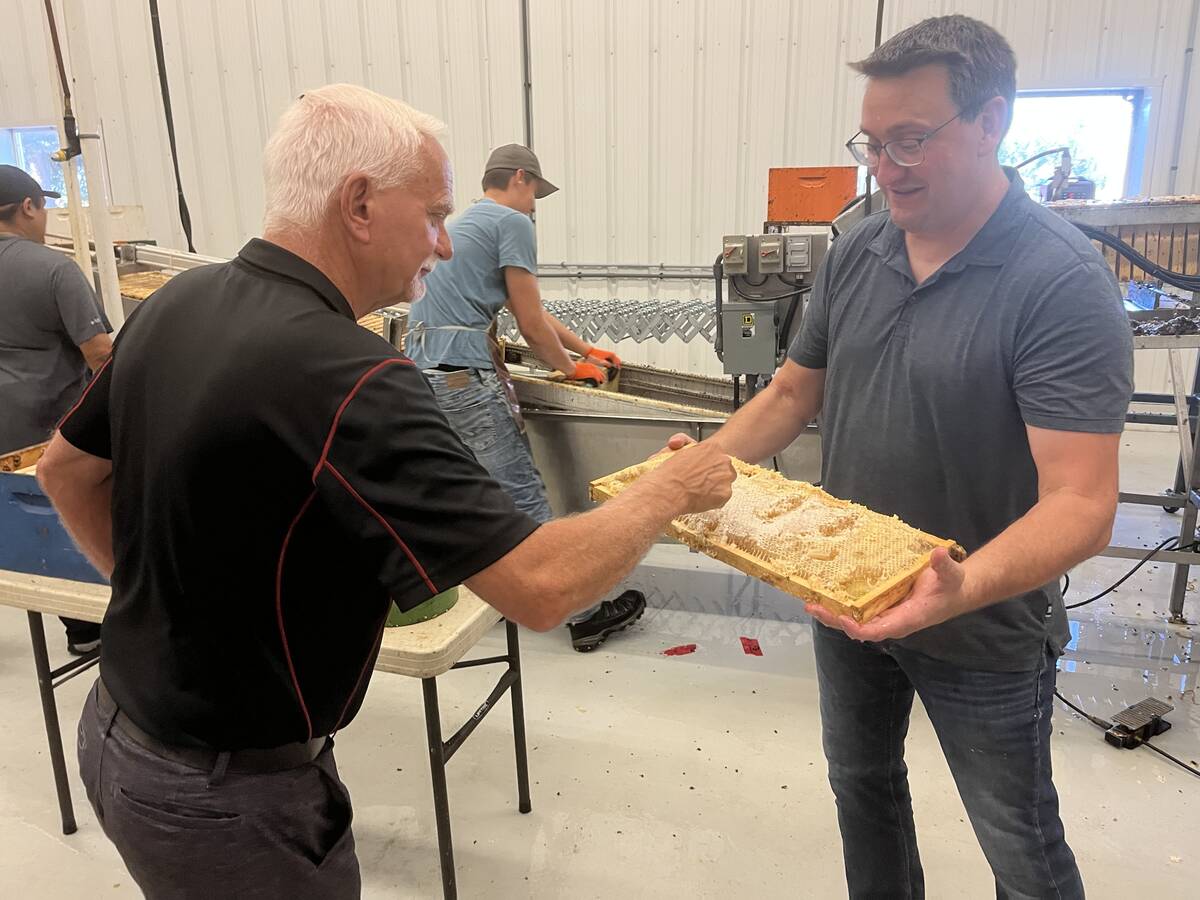Ken Imhoff says Canadians now see peoples’ faces when they hear about agricultural problems.
He thinks some of the credit should go to the nine-year-old Saskatchewan Farm Stress Line, which he manages.
“Across the province and across the country, there’s a growing awareness between agriculture and the production end, with the human dimension.”
While he and other farm line co-ordinators are proud of their services, confidentiality rules prevent them from telling favourite anecdotes of callers.
If they could, the Saskatchewan line’s 10 staff would have a lot of stories to tell right now.
Read Also

Alberta honey business ‘thrives’ despite bumpy beginnings
Thrive Honey showcases its honey production in market where Alberta produces 40 per cent of all honey produced in the country
Imhoff said late fall to early spring is a busy time because “there’s lots of payments on loans coming due and people know what they’ve got in the grain bin. Then there’s income taxes and spring planning.”
Imhoff said the Saskatchewan line received 1,142 calls in the first nine months of the year, which should put the year’s total at between 1,300 and 1,400 calls.
That’s normally what the line receives in a year, except for a high of 1,795 calls in 1999, which Imhoff said was caused by the publicity surrounding that year’s farm rallies and income protests.
Finances are still the callers’ main issue, representing a third of all discussions. Other major issues are stress and burnout, marital and other relationships, and leaving the farm. This year, callers were also worried about drought and its effects on their futures. About 55 percent of the calls are from women, which has been the pattern, except in 1999.
While suicide prevention was one of the major reasons for establishing the line, it has been less of an issue in recent years. Imhoff said there are more programs to deal with that problem and rural people are getting more help.
While Saskatchewan’s line is the oldest still operating, there are two others in Canada.
The Manitoba Farm and Rural Stress Line has been open for 10 months, said office manager Jo-Ann Breault. It is funded by the provincial health department.
Calls have varied from none a day to a high of 13 for the four staff, who all have farming backgrounds. No 10-month total is available.
Breault said while finances have remained the main issue, the focus is changing.
Last winter the line received most of its calls from older farmers nearing retirement who wondered whether they had enough income and what to do with their farm since their children didn’t want it.
Lately, the calls have been from younger farmers facing foreclosure. Their emotions range from frustration and anger to grief and shame.
Breault said the staff can offer support by letting farmers in transition know about retraining programs for jobs such as pork barn operations or nursing. But people must also be willing to access the programs. Sometimes student loans to take retraining can seem more like a burden than an answer.
Alberta used to have a help line run by the now-defunct Women of Unifarm but it collapsed in 1997 when funding dried up. Attempts to restart a line in the Peace River area failed.
Ontario opened a toll-free farm line last November following the 1998 ice storm and the pork price crisis. The line was set up by the Ontario Farm Women’s Network with sponsorship from private and public sources.
Ontario line co-ordinator Susan Klein-Swormink said they get four or five calls a day and are closing in on 800 for the year. She agreed calls are dominated by finances and the resulting family fallout.
As with the prairie lines, Ontario staff provide a listening ear and refer farmers to professional services such as personal and family counselling, and financial, legal and agronomic advice.
The line also has a response team that can go to a farm if an accident or other tragedy occurs.
















